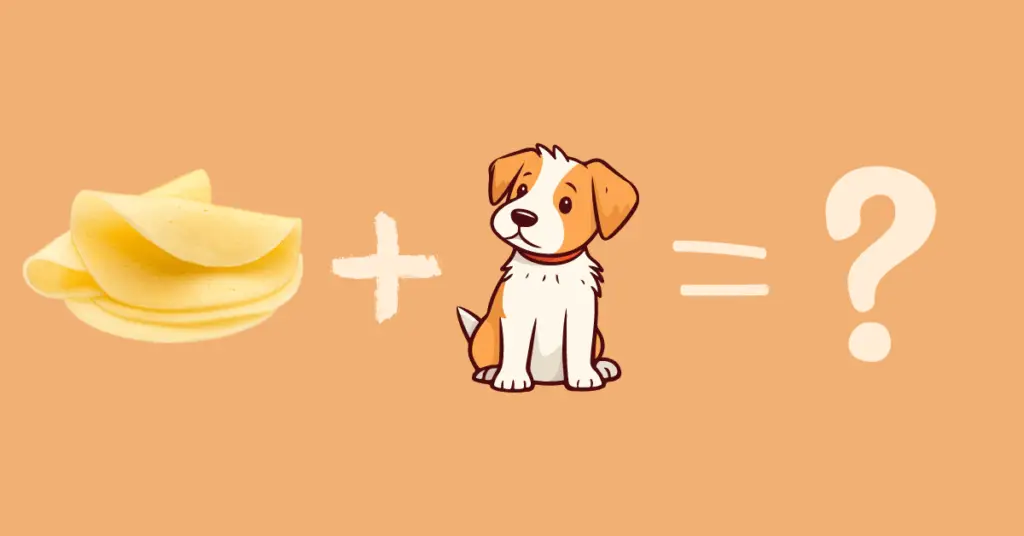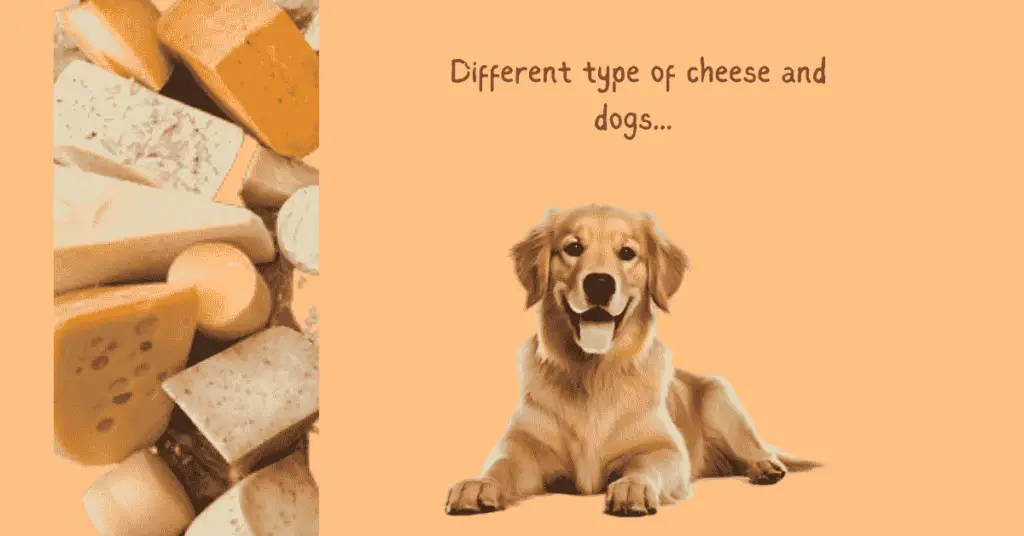
Can dogs eat Provolone cheese? In this comprehensive guide, we’ll unveil about dogs and Provolone cheese, shedding light on the potential risks and benefits of this dairy delight. We’ll explore the delicate balance between indulgence and safety, addressing the key question: Is Provolone cheese safe for dogs? Whether you’re considering sharing a cheesy treat with your pup or simply curious about their dietary options, join us on this cheesy journey to discover what’s best for your four-legged friend.
When it comes to our furry companions, we prioritize ensuring their well-being. One question that often arises is whether dogs can indulge in the delightful world of cheese, particularly Provolone. As a pet owner, staying informed about the foods that are safe for your canine friend is crucial.
Understanding the Canine Diet
Before we dive into the compatibility of dogs with Provolone cheese, let’s take a moment to grasp their dietary needs. Dogs can eat both meat and plants. But their nutritional requirements differ from humans. A balanced dog diet primarily consists of high-quality dog food formulated to meet their specific needs, including essential nutrients like protein, fats, carbohydrates, vitamins, and minerals.
Can Dogs Eat Cheese?
Cheese, in general, is a dairy product, and dogs, like some humans, can be lactose intolerant. This means that they may have difficulty digesting lactose. Provolone cheese falls into the category of dairy products, and it contains lactose.
The Lactose Factor
Lactose intolerance in dogs can lead to gastrointestinal issues such as diarrhea, vomiting, and abdominal discomfort. While Provolone cheese may contain a lower level of lactose than milk, it still contains lactose and can potentially cause problems for some dogs.
Individual Sensitivity
It’s important to recognize that not all dogs are the same. Just as humans have varying tolerances to lactose, dogs also exhibit different levels of sensitivity. Some dogs may consume small amounts of cheese, including Provolone, without any adverse effects, while others may react negatively even to the tiniest serving.
What’s Inside a Slice of Provolone Cheese?
| Nutritional Ingredient | Amount in a Slice of Provolone Cheese |
| calories | Around 100-110 calories |
| Total Fat | Approximately 8-9 grams |
| Saturated Fat | About 5-6 grams |
| Cholesterol | Roughly 20-25 milligrams |
| Sodium | Approximately 180-200 milligrams |
| Protein | Around 6-7 grams |
| Calcium | Approximately 200-220 milligrams |
| Sugars | Negligible |
| Carbohydrates | Minimal (less than 1 gram) |
Please note that these values can vary slightly depending on the brand and specific type of provolone cheese, but this table provides a general idea of the nutritional composition you can expect in a typical slice of provolone cheese.
Provolone Cheese and Sodium
Apart from lactose and fat content, another aspect to consider is the sodium level in Provolone cheese. High-sodium foods can lead to sodium ion poisoning in dogs, which can be life-threatening. Symptoms of sodium ion poisoning include excessive thirst, increased heart rate, vomiting, diarrhea, tremors, seizures, and, in severe cases, death.
Provolone Cheese:
People often use Provolone cheese, a semi-hard Italian cheese known for its distinctive taste and smooth texture, in sandwiches, pizzas, and even enjoy it on its own. But when it comes to sharing this dairy delight with your dog, there are a few things to consider.
Can dogs eat provolone cheese?
Now, let’s address the big question: can dogs have provolone cheese? Well, here’s the deal: while provolone cheese isn’t toxic to dogs like some other cheeses, it’s not the healthiest choice for them either. Provolone, like most cheese varieties, is high in fat and calories. Feeding your dog too much fatty food can lead to digestive upset, obesity, and other health issues.
Now, let’s sprinkle in some wisdom about moderation when discussing, “Can dogs eat provolone cheese?” If you want to treat your dog to a little cheesy indulgence, keep the portion size small, like a tiny piece as a special snack or a training reward when considering, “Can dogs eat provolone cheese?” Think of it as a “once in a blue moon” kind of thing.
So, here’s the deal: Provolone cheese isn’t toxic to dogs in small quantities, but it’s not their best buddy either when it comes to the question, “Can dogs eat provolone cheese?” You see, cheese, in general, can be quite fatty and salty, and too much of it isn’t great for your pup’s tummy. It can lead to upset stomach, diarrhea, or even worse, pancreatitis if consumed in large amounts.
Safe Cheese Practices for Dogs
If you decide to share cheese with your dog, here are some safe practices to keep in mind:
- Offer cheese in small, bite-sized pieces as an occasional treat, not a regular meal replacement.
- Monitor your dog for any adverse reactions after consuming cheese.
- Choose low-fat, low-sodium cheese options whenever possible.
- Be aware of your dog’s overall diet to avoid overloading them with calories from cheese.
Moderation is Key
If you decide to offer your dog a taste of Provolone cheese, it should be done in moderation. A small piece now and then as an occasional treat is unlikely to harm your pet, especially if they show no signs of lactose intolerance. However, it’s vital to monitor their reaction and discontinue if any digestive issues or discomfort arise.
The Dangers of Excess
Feeding your dog cheese, or any treat for that matter, in excess is never a good idea. High-fat foods like cheese can lead to obesity in dogs, which in turn increases the risk of various health problems, including diabetes and heart disease. Therefore, any treats, including Provolone cheese, should be given sparingly.
Alternatives to Provolone Cheese
If you’re concerned about the potential risks associated with feeding Provolone cheese to your dog, there are safer alternatives. Many dog-friendly treats are available on the market that mimic the taste and texture of cheese without the harmful ingredients. These treats are specially formulated to cater to your dog’s taste buds while ensuring their well-being.
Cheese Types and Dogs: What’s Safe and What’s Not?

Cheddar Cheese:
Cheddar is a popular choice, but it’s also high in fat and calories. For dogs, moderation is key. Small amounts as an occasional treat can be okay, but avoid excessive indulgence.
Mozzarella Cheese:
Mozzarella is lower in fat than some other cheeses, making it a somewhat safer choice for dogs. Still, portion control is essential.
Parmesan cheese:
Yes, dogs can eat parmesan cheese in moderation. Parmesan cheese is not toxic to dogs, but it’s important to give it in small amounts as an occasional treat. Cheese, including parmesan, is high in fat and calories, so overconsumption can lead to weight gain and potential digestive issues.
Swiss Cheese:
Swiss cheese is known for its holes and milder flavor. It’s generally fine for dogs in small quantities, but watch out for lactose intolerance.
American Cheese:
This processed cheese is often found in burgers and sandwiches. While dogs may enjoy its taste, it’s high in salt and not the healthiest option.
Cream cheese:
Cream cheese is rich and creamy, but it’s also high in fat and calories. It’s best used sparingly as an occasional treat.
Blue Cheese:
Blue cheese has a strong, pungent flavor that some dogs might find unappealing. It’s also quite salty, so it’s better avoided.
Gouda Cheese:
Gouda cheese, with its mild and creamy flavor, may seem like a tempting treat for your dog. While it’s not toxic, it’s important to exercise caution. Like most cheeses, Gouda is high in fat and calories, so it’s best reserved as an occasional indulgence for your canine friend.
Monterey Jack Cheese:
Monterey Jack cheese, known for its mild and buttery taste, can be shared with dogs in moderation. It’s relatively lower in fat and salt compared to some other cheeses.
Asiago Cheese:
Asiago cheese, with its sharp and nutty flavor, should be approached with caution when it comes to dogs. This cheese is typically high in fat and salt, making it less than ideal for canine consumption. While a tiny taste now and then may not harm your dog, it’s best to opt for safer cheese options and prioritize their health and well-being.
Conclusion
In conclusion, while dogs can technically eat Provolone cheese, it should be offered in moderation and with caution. Monitoring your dog’s reaction to any new treat is essential, and if you notice any adverse effects, it’s best to discontinue the treat immediately. Provolone cheese, like many other dairy products, can pose some risks to dogs if consumed in excessive amounts or by dogs that are lactose intolerant. While small amounts of Provolone cheese may not be harmful to all dogs, it’s essential to exercise caution.
Lastly, don’t forget to keep an eye on your dog’s overall diet. Cheese should be an occasional treat and not a substitute for their regular, balanced dog food when asking, “Can dogs eat provolone cheese?” Balancing treats with a healthy diet is the key to a happy and healthy furry friend.
So, there you have it, amigo! Provolone cheese is not off-limits for your canine companion, but it’s more of a “special occasion” treat. Keep it small, watch for any adverse reactions, and always prioritize your pup’s well-being. Woof woof! 🐾
As responsible pet owners, it’s our duty to prioritize our furry friends’ health and happiness. If you have any concerns about your dog’s diet or specific dietary restrictions, it’s always a good idea to consult with your veterinarian. They can provide you with personalized advice to ensure that your canine companion receives the best possible care.
